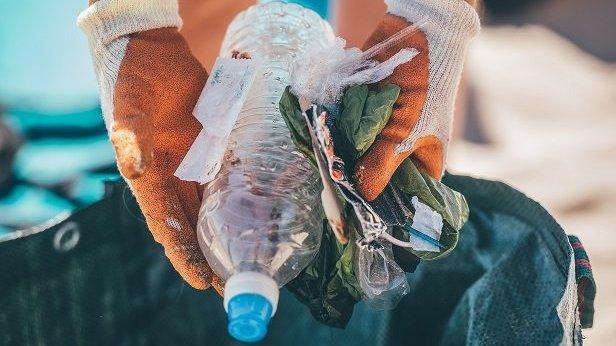Sewage pollution: Why has Windermere lake turned green?
- Published
- comments
Algae caused by sewage ruining Lake Windermere
Windermere in Cumbria is England's biggest lake and attracts thousands of tourists every year.
But in recent months, people have been advised not to swim in it or allow their dogs to go in the water in it as it has seen a huge increase in pollution levels.
Conservationists say this is due to raw sewage (what humans flush down the toilet), being pumped into the lake as the nearby water treatment site is struggling to handle the amount of excess storm and rain water.
Storm overflows are designed to discharge sewage into rivers, or the sea, at times of heavy rainfall or snow melt to prevent it backing up into homes and streets.
But it appears they are being used far more frequently than they should.
This raw sewage is also causing problems for the wildlife around the lake.
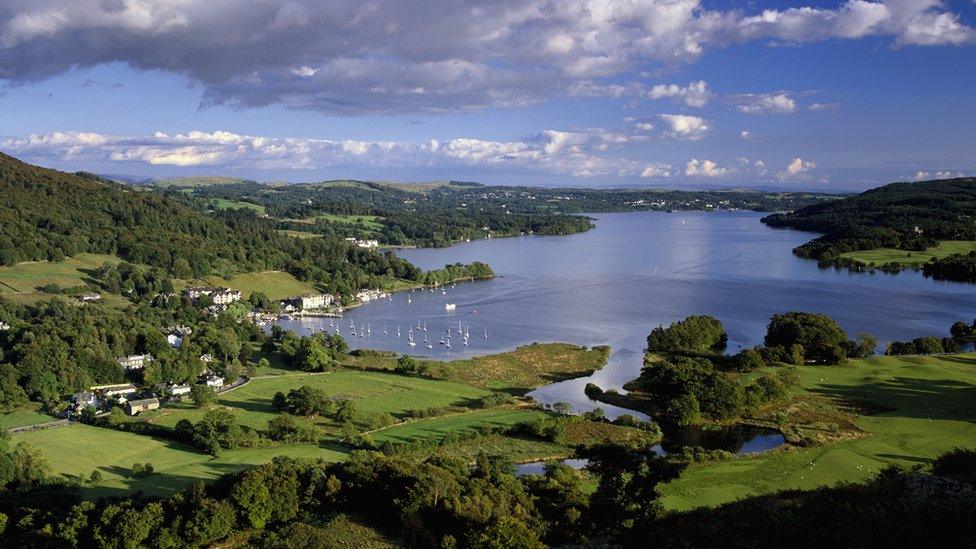
Lake Windermere is England's largest lake
Matt Staniek, who is a zoologist, told BBC News that the lake is in a "dire state".
He says the sewage adds phosphates to the water, which acts as fertiliser for green algae - micro organisms that live in the lake.
As they breed and bloom, the green algae consumes the lake water's natural oxygen, meaning fish, amphibians and other living things in the water do not survive.
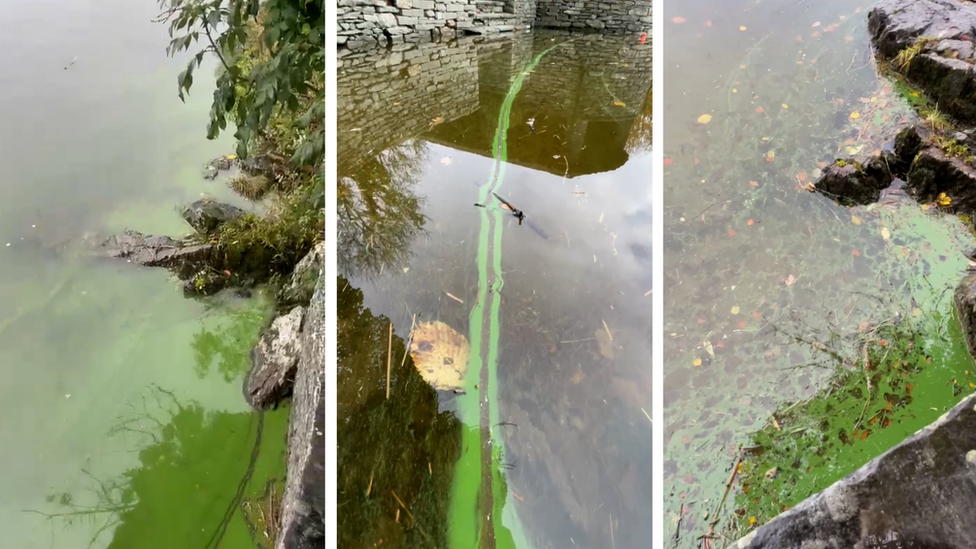
The green algae in Windermere can cause human and animal illness.
"I want the government to come in and say, 'No more water pollution in the Lake District'," Matt told Newsround.
"I think that can happen. It's definitely possible. We have to be hopeful for the future. I want to see the wildlife protected in the Lake District."
Rebecca and Lorna often visit the lake for activities like stand-up paddle-boarding and sailing, but say they have been restricted to a smaller area because of the unsanitary conditions.
"There are loads of dead fish and flies and it really stinks," says Rebecca.
Lorna says swimming in the green algae can cause sickness in humans and animals.
"It makes me feel really sad and annoyed because Windermere is one of the biggest natural sources but we can't use all of it," she said.
The Environment Agency, which monitors issues like this in the Lake District and in other parts of the UK, said it is "working actively with the water companies to ensure overflows are properly controlled and the harm they do to the environment stopped".
United Utilities, which provides water for the local area, said: "Sewer overflows are mostly rainwater and contribute a tiny fraction of the phosphate that causes algal blooms in the lake.
"More than 60% comes from other sources like private septic tanks and run-off from farmers' fields.
"We are willing to play our part but the problem will never be solved unless everyone works together to tackle the worst problems first and the Environment Agency needs to lead this."
What about the rest of the UK?
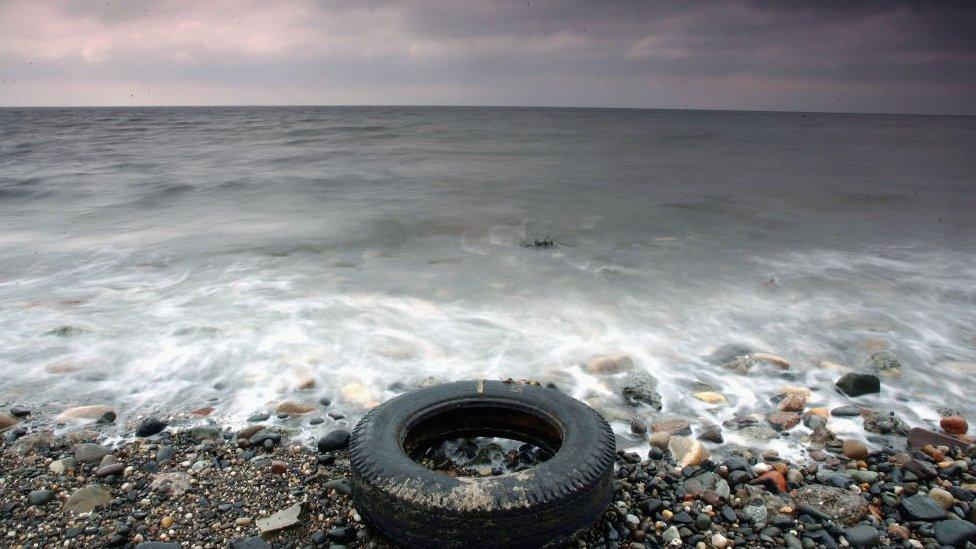
How clean is the water at the UK's beaches? Probably not very....
A recent report has said that water companies increased the amount of raw sewage they emptied into the coastal bathing waters by more than 87% than the previous year.
The 2021 Water Quality report by campaign group Surfers Against Sewage says these figures show that storm overflows are being used too often, rather than in emergency situations, which is what they are intended for.
In October 2021, MPs voted to allow water companies to continue to release an unlimited amount of raw sewage into rivers and seas.
But after a lot of angry reaction, the government backtracked and decided to force water companies to reduce the amount of waste sewage going into the UKs waterways.
- Published27 October 2021
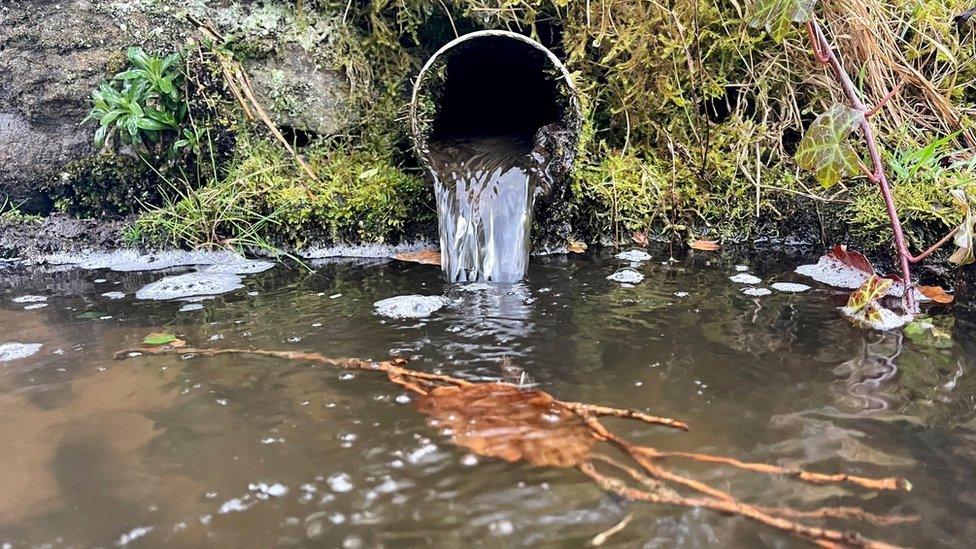
- Published16 September 2021
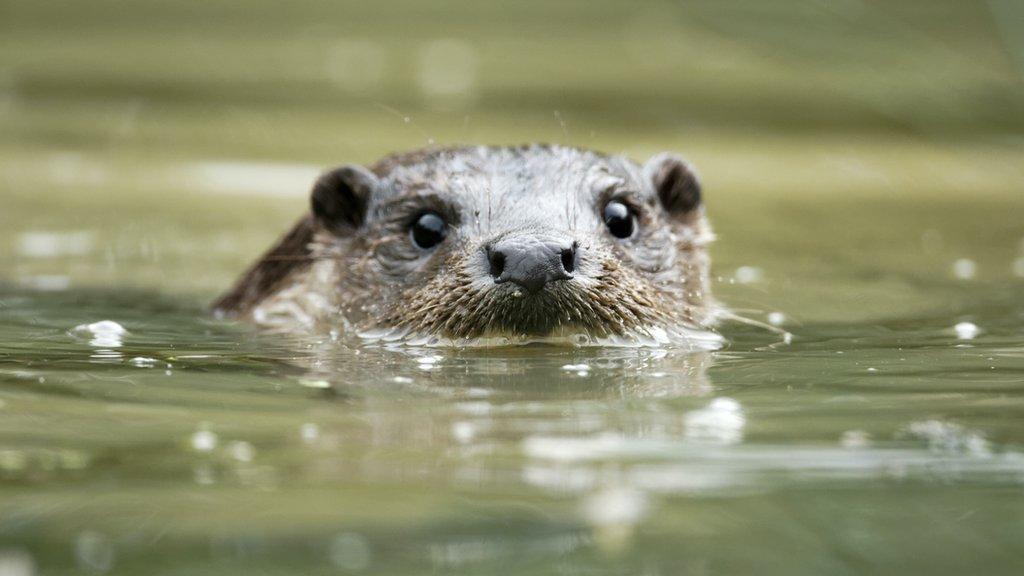
- Published25 November 2021
